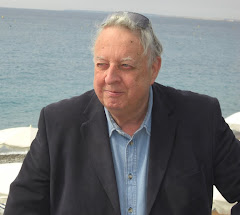My latest acquisition sees Catherine Manoukian playing the violin, with her husband, Stefan Solyom, conducting the Weimar Staatskapelle. Manoukian does well, and gives a nice performance. Her sound is “modern” with rich, seamless lines to her playing (why do so many modern violinists want to sound like clarinetists? Don't they realise that one reason there are so few concertos for woodwind, as opposed to strings or piano, is because super-suave tone can pall after a few minutes?)
The main problem with this recording, however, is that it sounds very much like a “concerto for violin, with orchestra”. The soloist is recorded well forward. The orchestra sounds somewhat in the background, and the two never really dialogue as in “concerto for violin and orchestra”. The last movement cadenza, in particular, suffers from the soloist's forward balance; there is none of the mystery and lightness that the cadenza usually portrays. The Elgar concerto ideally needs a good, on-the-ball orchestra, a supreme soloist, a good rapport between soloist and conductor, and a good recorded balance. One reason I really like Thomas Zehetmair with the Hallé Orchestra under Mark Elder. Ms Manoukian joins the ranks of the many fine versions that do not quite make the top echelon.
